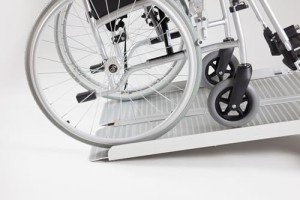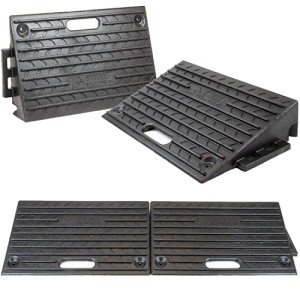Guide To Ramps For Mobility Scooters: The Intermediate Guide In Ramps …
페이지 정보

본문
Ramps for Mobility Scooters: A Comprehensive Guide
Mobility scooters have become indispensable tools for people with mobility challenges, providing a sense of independence and flexibility to browse various terrains. However, for these scooters to be totally practical in everyday life, the use of ramps is frequently vital. In this post, we will explore various types of ramps, their advantages, factors to consider when choosing the ideal ramp, and respond to some regularly asked questions.
Comprehending Ramps for Mobility Scooters
Ramps are inclined surfaces that allow mobility scooters to get rid of challenges such as curbs, steps, and thresholds, making it simpler and safer for users to access buildings, automobiles, and outside areas. By providing a mild slope, ramps lessen the risk of accidents and increase accessibility for individuals utilizing mobility scooters.
Kinds of Ramps
There are a number of types of ramps offered on the market, and each type serves different requirements. Below is a table that describes the numerous types of ramps for mobility scooters:
| Type of Ramp | Description | Ideal Use |
|---|---|---|
| Foldable Ramps | Lightweight and Portable Disabled Ramp Ramps For Wheelchair that can be folded for easy storage. | Home usage, travel, and events |
| Fixed Ramps | Long-term ramps made from heavy-duty materials. | Accessing buildings or homes |
| Electric Wheelchair Ramps Ramps | Designed specifically for people using wheelchairs and scooters. | Public locations, homes, and services |
| Threshold Ramps | Brief ramps particularly designed to fit over door limits. | Interior or exterior door access |
| Portable Ramps | Easily transportable ramps produced temporary usage. | Travel and outdoor events |
Advantages of Using Ramps
Safety: Ramps decrease the threat of accidents by offering a stable slope for mobility scooter users to browse challenges.
Ease of access: With ramps in place, users can access structures, vehicles, and public spaces with higher ease.
Self-reliance: Ramps empower people with mobility challenges, allowing them to move easily without depending on support.

Adaptability: Ramps are offered in various sizes and styles, making them ideal for indoor and outdoor usage, along with for different terrains.
Cost-efficient: By making it possible for much better access, ramps can alleviate the need for substantial renovations or modifications to homes or buildings.

Factors to Consider When Choosing a Ramp
When selecting a ramp for mobility scooters, it's vital to assess numerous aspects to guarantee it fulfills the user's needs effectively. Here's a checklist of considerations:
1. Weight Capacity
- Make sure the ramp can support the weight of both the mobility scooter and its user. A lot of ramps indicate their maximum weight capability.
2. Length and Inclination
- Steeper ramps may be harder to browse. It's important to choose a ramp with a proper length to produce a gentle slope. The Americans with Disabilities Act (ADA) advises a ratio of 1:12 for wheelchairs, suggesting that for every inch of rise, there ought to be at least 12 inches of ramp run.
3. Material
- Ramps are made from various products including Aluminum Wheelchair Ramp, wood, and plastic. Aluminum ramps are lightweight and durable, while wooden ramps might mix better aesthetically with a home however can be heavy.
4. Portability
- Consider how frequently the ramp will be moved. If mobility is vital, search for foldable or lightweight choices.
5. Surface area Texture
- A non-slip surface is important for safety, especially in damp conditions. Search for ramps with textured surfaces or added grip features.
6. Application Area
- Identify if the ramp will be used inside your home or outdoors. Outside ramps may require to endure weather condition components, while indoor ramps should fit comfortably in doorways or corridors.
7. Local Regulations
- Constantly inspect local building regulations or guidelines relating to ramp setup, specifically for irreversible structures.
Frequently Asked Questions (FAQs)
1. How do I understand what size ramp I need?
- The size of the ramp required will depend upon the height that requires to be gotten rid of and the available space for the ramp. Measuring the vertical increase and considering the ADA recommended slope ratio will help figure out the appropriate length.
2. Can ramps be utilized for other mobility aids besides scooters?
- Yes, ramps can be made use of for various mobility aids, including wheelchairs, walkers, and even strollers.
3. Exist any security suggestions for utilizing ramps?
- Constantly inspect that the ramp is firmly located and steady before use. Encourage users to approach ramps gradually and maintain a constant speed when rising or descending.
4. How do I maintain my ramp?
- Frequently inspect the ramp for any signs of wear or damage. Clean them regularly to remove dirt and prevent slipping, and secure any loose hardware.
5. Are there monetary assistance programs for purchasing ramps?
- There are numerous programs that may assist in purchasing accessibility equipment, including ramps. These may consist of regional grants, federal government help programs, or charitable companies concentrated on disability support.
Ramps For Mobility Scooters (Rentry.Co) play a considerable role in creating accessible environments for people with mobility challenges. By understanding the various kinds of ramps readily available, their advantages, and the elements to consider when selecting a ramp, people and caretakers can make informed choices that boost independence and safety. Whether for home use, public structures, or travel, the best ramp will make sure that mobility scooter users can navigate their world with ease, self-respect, and confidence.
- 이전글Guide To Saab 9-3 Key Fob Programming: The Intermediate Guide Towards Saab 9-3 Key Fob Programming 25.11.28
- 다음글5 Must-Know-Practices Of Norwegian Driving License Cost For 2024 25.11.28
댓글목록
등록된 댓글이 없습니다.


